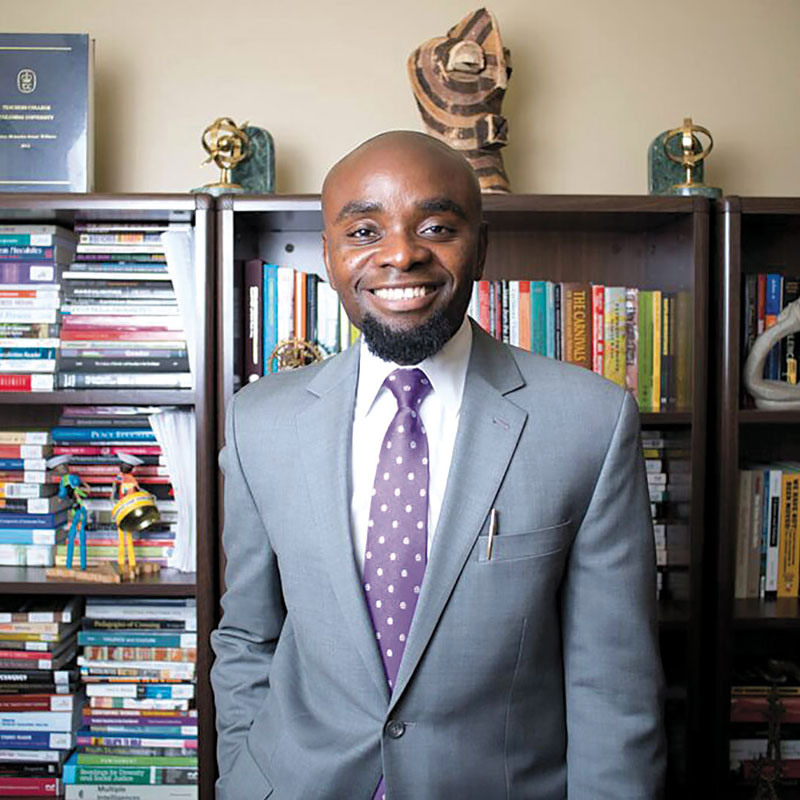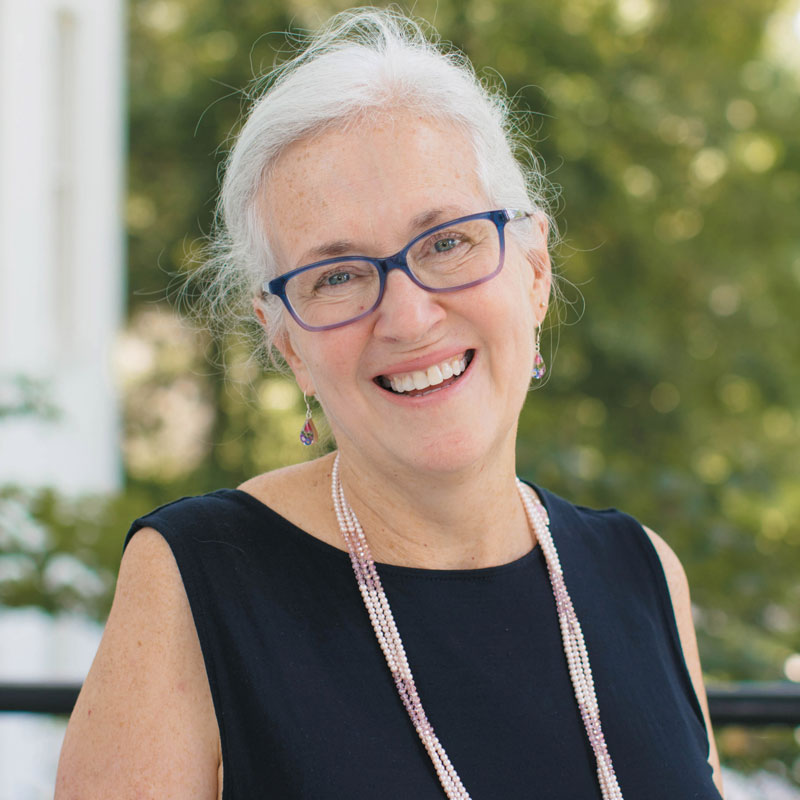
Hakim Mohandas Amani Williams
Professor of Africana studies, education, globalization studies, and public policy, and director of peace and justice studies
I grew up in Laventille, Trinidad, the firstborn of three children. My family didn’t have much materially, but I sure made up for that with an abundance of imagination. I would chalk the concrete steps in front of our home, pretending they were my students. I’d teach math, English, or any subject I fancied. I recount this story often as a meditation on my life’s calling as an educator, despite wanting to be a medical doctor growing up. I enter my classroom with purpose and vigor, issuing my faintly mischievous, but glee-filled greeting: “Good morning, critical thinkers!” Students know me as a professor who challenges them from the first day of class until the very last moment of our semester together. I contextualize this challenge as one that necessarily emerges from my gratitude for the privilege and responsibility we all have to be at a place like Gettysburg College! Most days, I utter to my ancestors, “Thank you for gifting a poor, queer, immigrant kid from Laventille the treasure of being a college professor who gets to learn with, and from, some amazing students who want to craft a more just world. Asé!”

Amy Dailey
Professor of health sciences
In 2019, more than 1.7 million people were projected to receive a new cancer diagnosis. Despite these overwhelming numbers, cancer death rates are on the decline, meaning more and more people are surviving cancer. The stories of survivors involve serious pain, fear, and anxiety. But you will also hear stories of gratitude, hope, appreciation, living for today, and reprioritization. Some survivors report feeling grateful for their treatments and doctors, noticing a heightened sense of appreciation of people and beauty, learning to see the positive in situations, and enjoying friends and family more. Some go as far as to say that cancer helped them to live more in the present, moving beyond the past, and not putting valued opportunities off for a later time. To be clear, being diagnosed with cancer and undergoing subsequent treatment has serious physical, psychological, and social implications. At first glance, it may seem insensitive to write about positive aspects of having cancer, but we have much to learn from listening to cancer survivors’ perspectives on gratitude and hope.

Kristin Largen
College chaplain and associate dean of religious and spiritual life
Usually, we experience gratitude as an episodic response to something good that happens—we receive some unexpected kindness or a happy surprise. In that moment, we are grateful for our good fortune. However, gratitude also can be an overall disposition that can positively shape our outlook on the world and our relationships with others. Experienced this way, gratitude becomes a habit that enriches our lives and the lives of those around us, too. How do we do this? A good place to start is with mindful attention. When we pay attention, life’s wonders begin to appear, and we become more thankful for the goodness we experience, not just once in a while, but every day. Gratitude begets more gratitude. Then, from this internal experience, we can turn our feelings of gratitude outward into words and deeds of thankfulness to share with others. A life of gratitude is simple, really. To paraphrase Mary Oliver: Pay attention, give thanks, and tell others.
“I’ve realized that anyone can tell you to reflect on your life and think about what you’re grateful for and what you can do for others, but Coach [Carol] Cantele didn’t just tell us. She showed us how.”
— Macauley Mikes ’17
Read more about the Stoles of Gratitude tradition.

Churon T. Lanier-Martin '20
English major and peace and justice studies minor
Accepting the reality of Murphy’s Law—“what can happen will happen”—helps my optimism. This perspective is something I have begun to acknowledge recently, after studying abroad in Bali, Indonesia, and observing how Balinese people live firsthand. One’s quality of life is largely internal, and our thinking shapes our realities. For example, my host father in Kerambitan, to whom I referred as “Bapak,” and I met at his farm the first day I moved in with the family. [Over time], I learned that [in addition to farming], he was also a teacher at the local primary school. He even hosted, what I assume, were after-school tutoring sessions in their home before dinner. He was never too tired to lend an ear to one of his three daughters or warmly welcome me home from the program center. It was a joy to see his leadership as a role model of both sacrifice and gratitude. I have come to understand that my attitude dictates my experience, and being grateful is central to maintaining a balance between positive and negative stress. Life is a treadmill, not a ladder. Read more about Lanier-Martin in the Spring 2020 Gettysburg College Magazine feature, “Change Agents.”

Kathleen M. Cain
Professor of psychology
While the psychological research on gratitude is relatively new, the findings are consistent with millennia of religious and spiritual teachings. Those who are grateful for something—anything—are able to take a broader perspective on whatever is happening at that moment. Gratitude lifts us out of ourselves and orients us toward a bigger picture, a larger good. It helps us keep our own importance in healthy perspective, and it helps us find our way through difficult times. Abundant evidence shows gratitude promotes psychological well-being, physical health, moral behavior, and positive relationships. Simple practices such as saying three good things that happened each day or keeping a gratitude journal can have remarkable effects. When someone expresses gratitude to another, both that person and the recipient benefit. Gratitude binds people together, and it even promotes positive outcomes for those who merely witness gratitude expressed and received by others. Gratitude, in short, is a key part of human flourishing.
Posted: 04/13/20